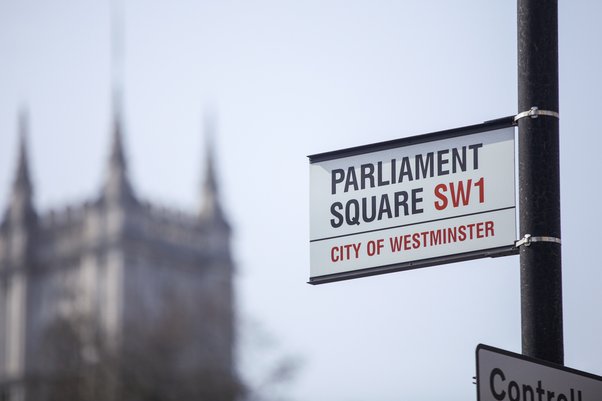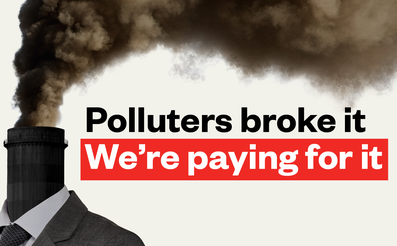Indonesia's "Amazon of the Seas" threatened by EV nickel rush
Nickel mining has been expanding in Indonesia's Raja Ampat, fuelled by the world's demand for EV batteries – but Indigenous communities are campaigning to protect their home and its critical ecosystem

Make polluters pay
-

It's only fair that polluters pay for climate change costs
With the costs of climate change impacts rapidly rising, the billions pocketed by the fossil fuel industry is an insult to the communities worst hit by extreme weather. It’s time to make polluters pay for the damage they’ve caused
-

Taxing polluters for a fairer, greener society: Joint civil society policy platform
Tax Justice UK, Oxfam GB and Global Witness outline a suite of evidence-based policies the UK government could take to ensure those most responsible for climate breakdown pay their fair share and raise billions of vital revenue
-

Time to pay up: Make Big Oil fund climate loss and damage
Fossil fuel companies, not regular people, should be the ones to pay for worsening loss and damage costs caused by the climate crisis
Perspectives
-

Why now is the worst time for US lawmakers to abandon clean energy plans
The fallout from Middle East tensions underscores the peril of fossil fuel dependence. So why are US lawmakers retreating from clean energy?
-

Cutting flood spending could cost the government the next election
Cutting flood defence spending could cost more than leaders think. Making polluters pay is a fair way to protect communities and rebuild trust
-

"AI-generated" is the new "fake news"
Widespread confusion over AI around the US election is the result of a poorly regulated tech sector
Defending our planet's frontline
Climate crisis in focus
-

Rainforests explained: Where they are, what they do and why they’re crucial for our planet
The Amazon is just one of the world’s many rainforests – with each playing a pivotal role in the planet’s health
-

Why the Escazú Agreement matters for land and environmental defenders in the Caribbean
Attacks on land and environmental defenders in the Caribbean are often overshadowed by mainland Latin America, but protecting their rights is just as crucial
-

Transition minerals: A climate solution that could cost the earth
Renewable energy is often hailed as a panacea for the energy crisis. But without better consultation and regulation, plans to expand mining for minerals central to the energy transition could be disastrous
The time for change is now
The climate crisis is no longer an event on the horizon. It’s here, it’s now. Find out how you can support our work to tackle its root causes.


About us
Global Witness is an investigative, campaigning organisation that challenges the power of climate-wrecking companies, and stands with the people fighting back




